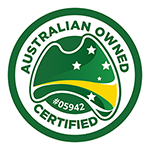LET’S TAKE ACTION TOGETHER
The recent 2018 Federal Budget announcements interestingly included a section on triennial SMSF audits. From 1 July 2019, SMSFs with a history of ‘good record-keeping and compliance’ will only need to have their financial statements audited every 3 years.
The SMSF industry is a $900B sector that is unique on a world scale in that it places concessionally taxed assets targeted for the retirement of individuals directly into their own control, and then asks them to comply with the rules. An audit process always has been and always should be an integral and essential part of that compliance.
We are waiting on the details of this proposal to be released. One obvious question is whether the audit is to be conducted on the fund’s third year, or if it is also to report on the preceding 1-2 years.
It is disappointing to all SMSF auditors that there was no proper consultation in a democratic way with the industry prior to announcement.
It is therefore not surprising that such a change will create many contentious issues around resourcing, independence, compliance, and other impacts to the super audit industry as a whole.
From a resourcing perspective, this change would be practically impossible to implement. Retaining, recruiting and retraining staff every few years is just not feasible.
Some issues associated with resourcing constraints is that –
- Larger full service firms have the ability of training staff to move between other divisions within the firm, but smaller accounting firms, and in particular most audit only firms do not have that capability.
- SMSF audit is a specialized skill which can’t be taught easily or quickly, and requires continuity from year to year. A shortage of super auditors could occur in the future.
- The likelihood of creating capacity via overseas resourcing might become a more viable option to some firms.
From an independence perspective, there is a greater chance of both auditor and accountants impairment if they are pressured to potentially ignore compliance issues to ensure that funds qualify for the triennial audit exemption. This proposed legislation will most likely increase these intimidation threats.
From a compliance perspective, the proposed legislation will encourage trustees to ignore SMSF compliance laws, knowing that the fund will not be audited for several years. A key issue relating to compliance is obtaining sufficient appropriate audit evidence – it is already difficult to obtain relevant and reliable evidence for the current year being audited. If we move to triennial audits, we would be asking for documentation from trustees up to 4 years after the event. This will probably result in more contraventions being reported, and up to 4 years after the contravention occurred.
More importantly, this in turn is likely to impact the SMSF audit industry as a whole in many ways, including –
- The number of SMSF auditors is likely to further rapidly decline. This could also be triggered with the proposed substantial increase in both super auditor registration and deregistration fees, and the general ageing issue of auditors entering into retirement;
- The prices charged by SMSF auditors will inevitably increase which is ironically opposite to the intention of the proposal;
- The quality of SMSF audits might decline as auditors struggle to maintain their required professional competence and skill levels, and professional bodies and tertiary education centers struggle to deliver relevant courses to fewer super auditors. This is clearly incongruent with the governments’ intention of improving quality in audits via super auditor registration and ongoing monitoring of auditors;
- The continued investment in technology for the super audit industry will be stifled. Given that superannuation is unique to Australia and any such technology cannot be globalized, this will be shameful for Australia to retard rapid technology improvements;
- The willingness of SMSF auditors to adapt to new audit methodologies brought about by important advances in data fed transactions and data analysis will be stagnated. This should be compared to the advances which auditors undertaking statutory audits have already moved towards;
- There will be need to be a substantial increase in resourcing by the government to directly increase their compliance reviews on individual SMSF’s, as well as the ongoing review of super auditors.
It seems incongruent that APRA funds and other industries have not been similarly affected by this proposal. These include Financial Services Licences, trust accounts, large proprietary companies etc which still need to be audited.
In our view, this proposal clearly undervalues the importance that SMSF auditors represent to the ATO as their agents, and to other professionals servicing the Super industry.
Market forces have substantially reduced the prices of SMSF audits over the years to a level which has been accepted in the industry. Government legislation disturbing this seems unnecessary.
The value that SMSF auditors represent in their relationships with accountants, administrators and advisors is often overlooked and not fully appreciated.
We cannot understand any logic in allowing trustees of SMSF’s to self assess their compliance with legislation just to save costs and purportedly reduce red tape.
If you would like to contribute to this discussion, or acknowledge your support for this call to action, please email us as we all need to collaborate even if you are not an SMSF auditor.
Let’s take action together.







